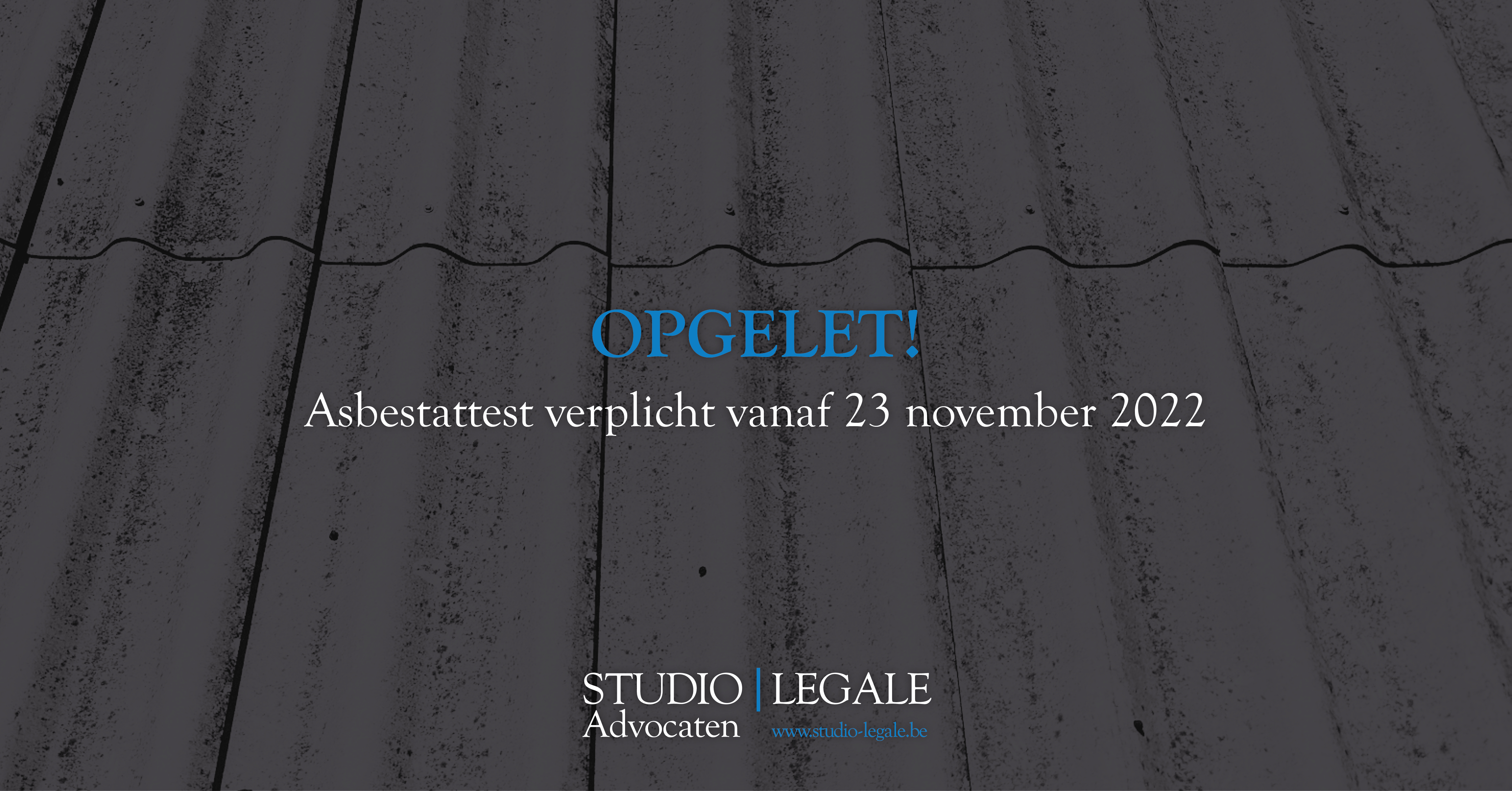Attention! Asbestos certificate obligatory from 23 November 2022
As of November 23 this year, an owner in Flanders must provide an asbestos certificate to the buyer when selling his home if the home dates from before 2001.
In principle, this obligation applies to any transfer among living persons relating to a property right – such as any sale or gift – or any establishment or transfer of a right of usufruct, emphyteusis, superficies or a right of use in rem.
Moreover, a landlord will be required to transmit a copy of the asbestos certificate to his (potential) tenants, if the certificate is available.
By 2032, however, every owner of a building or residence older than 2001 will be required to have an asbestos attestation.
The asbestos certificate lists all asbestos-containing materials in the building and includes:
- a description of the building and which materials/building components contain asbestos
- what the condition of the asbestos is
- how it can be safely removed or managed[1]
To obtain the attestation, the owner will need to hire a certified asbestos expert to conduct an asbestos inventory of the building. The attestation will probably cost between 395 and 850 euros, depending on the size of the building.
In the case of a sale, the seller transfers the attestation to the buyer before signing the compromise.
Although removing asbestos is always a healthy choice, there are no specific obligations attached to the substantive outcome of the attestation. The asbestos-containing materials do not have to be removed.
The purpose of the asbestos attestation is primarily to sensitize the buyer or user. It also enables the mapping of Flemish properties with asbestos presence.
If you have any question regarding the asbestos certificate, do not hesitate to contact us!
[1] J. CEENAEME, “[Kopen en verkopen] Vastgoed en bijkomende verplichtingen” in J., DAMBRE, M., VANDROMME, T., CEENAEME, J., DEFOOR, W., VANMUYSEN, J., CLABOTS, A., VANBIERVLIET, W., VANOPPEN, K., Vastgoedzakboekje, Mechelen, Wolters Kluwer Belgium, 2022, 158-160.




